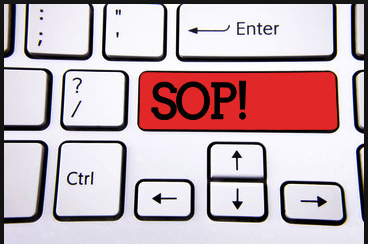Authority to Purchase
A Purchase Order is a binding contract issued by the Business Administrator authorizing the work or service to be done and/or the materials and supplies to be delivered to the school district [N.J.S.A. 18A-2(v)]. The Board of Education has authorized the Business Administrator/Board Secretary as a Qualified Purchasing Agent (QPA) for the Morris Hills Regional District.
Authorized Purchases
All materials, supplies, and services purchases must be made through an approved purchase order signed by the Business Administrator/Board Secretary.
Unauthorized Purchases and Penalties
Any Board of Education employee who orders and/or receives any materials, supplies, or services without going through the approved purchase order process has made an unauthorized purchase.
When the purchase order follows the goods ordered, it is often called a “confirming order.” Unauthorized purchases and confirming orders violate State law and Board policy. Employees may be required to pay for unauthorized purchases, and you may be subject to disciplinary action by the Superintendent.
Open Purchase Orders (OPOR)
All purchase orders must be written and approved for each purchase, even if multiple purchases are made from the same vendor throughout the school year. It violates purchasing regulations and district policy to issue a purchase order to a vendor or supplier without a specific dollar amount and a description of the goods or services provided.
Signing Contracts
Board of Education employees are prohibited from signing any contract a vendor offers. The power to sign and execute contracts after Board of Education approval lies with the Board President and the Board Secretary. Contracts signed by an employee shall be considered non-binding, with the employee accepting full responsibility for the contract’s costs. The award of a contract to a vendor approved by the Board of Education at a public meeting does not automatically authorize any employee to use the services of or purchase materials from the vendor. All purchases require a purchase order authorizing the purchase of goods and/or services from the vendor.
Ethics in Purchasing
The Board of Education expects that all Board employees practice exemplary ethical behavior in purchasing goods, materials, supplies, and services. Employees are reminded of the following:
Financial Interest in any Contract: Direct or Indirect
No employee or board member may have a direct interest in any contract or agreement for the sale of goods and services to the Board of Education nor receive any benefit, compensation, or reward from any contract for the sale of goods and services to the Board of Education (N.J.S.A. 18A:6-8).
Conflict of Interest
District officials and employees are prohibited from recommending purchases from members of their family or businesses that employ family members.
Favoritism
District officials and employees are prohibited from extending favoritism to any vendors. Each recommended purchase should be based on quality, price, service, delivery, and other applicable factors in full compliance with N.J.S.A. 18A:18A.
Funds, Solicitation of Gifts
All district staff are prohibited from soliciting funds, materials, goods, supplies, favors, and other valuable items from vendors doing business with the Morris Hills Regional District Board of Education.
The tenets of the New Jersey School Ethics Law shall guide all district officials and employees.
Criminal Code Citations
All district employees must understand the seriousness of ethics in Purchasing as described above.
A person commits a crime if the person, as a public servant:
“directly or indirectly, knowingly solicits, accepts or agrees to accept any benefit from another for or because of any official act performed or to be performed by the person or for or because of a violation of official duty.” [N.J.S.A. 2C:27-4(1)]
If the benefit solicited, accepted, agreed to be accepted, offered, conferred or agreed to be conferred is worth $200 or less, it is a crime of the third degree. A person convicted of a crime of the third degree is subject to a fine of not less than $25,000, imprisonment, or both.
“A public servant commits a crime of the fourth degree if, while performing his official functions on behalf of a governmental entity, the public servant knowingly transacts any business with himself, a member of his immediate family, or a business organization in which the public servant or an immediate family member has an interest.” [N.J.S.A. 2C:27-10]


